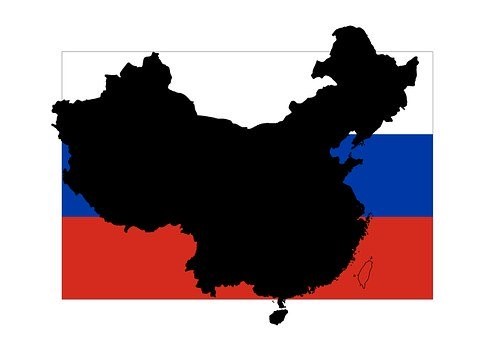We live in a world that neorealists would argue requires hegemony as a necessary and sufficient condition for a stable world order and a peaceful international system. The collapse of the Soviet Union ended those conditions present during the Cold War era. It also ended 45 years of bipolar stability. With the onset of the Russian war in Ukraine the world is quietly edging back from tripolarity towards a bipolar international system. Colin Clarke and Mollie Saltskog, writing in Defense One, say that the Russian war has “accelerated” the process. Prior to February 2022, Russia, China, and the United States composed the three centers of military, political, and economic power in the world.
Over the last 12 months Russia has devolved into a far less powerful state. The realm of strategic competition for hegemonic status resides today only in the struggle between Washington and Beijing. A new bipolar balance is rapidly evolving between the two capitals over the last year.
Russian war casualties last year topped an estimated 200,000 troops killed and are mounting daily. The Wagner Group, Putin’s mercenary force, has resorted to recruiting soldiers in prisons, jails, and mental hospitals. Russia’s precision strike munitions and artillery shells are approaching depletion levels not seen in decades. Thousands of pieces of the country’s armored equipment, fighter jets, and helicopters have been destroyed by Ukrainian forces. A war Putin once proclaimed as a short, special military operation is moving into its second year without any indication of slowing, or ending, in 2023.
Despite international condemnation from the West and major economic sanctions, Moscow continues to commit crimes against humanity. It is making Chinese leader Xi Jinping nervous. As Moscow grows weaker and more isolated from the world community, and Putin becomes more desperate in his threats and actions, China is left as one of Russia’s few remaining partners. The war is forging a closer Sino-Russian relationship built on convenience. Xi recognizes it could spill over into economic sanctions against China. Beijing already has supplied crucial dual-use technology to Russia, shipping navigation equipment, jamming technology, and jet-fighter parts, according to Clarke and Saltskog.
Despite US warnings, China is supplying computer chips, smart phones, and satellite imagery to Russia’s Wagner Group. US intelligence officials report that China is now considering sending Moscow ammunition and artillery. Secretary of State Antony Blinken calls it a “serious problem” as Xi Jinping publicly promised the Russian president that the partnership comes with “no limits.”
As Putin passes the one-year mark he is anxious to show he remains a major player with a seat at the table and that he has made significant progress in Ukraine. He can’t easily do so without China’s military aid. Senator Lindsey Graham recently classified Putin’s attempt to jump on the China gravy train as “dumber than dirt.” Although China may pull back and not openly supply Putin with the arms he needs, it still is strong indicator of Russia’s position as the weaker, junior state. Historically, conflict between China and the Soviet Union centered on the disagreement over which country was leader of the communist world.
It is evident today that Moscow is no longer the frontrunner state. With Putin relegated to a deferential role, Xi Jinping is using his elevated status to dictate terms for oil and gas deals that strategically diversify China’s critical energy supply chain. Russian energy from its Far Eastern region runs through two main pipelines directly into China. Beijing’s help in building and maintaining the Power of Siberia pipeline requires large numbers of Chinese citizens to live and work inside the sparsely populated Far Eastern Russian territory, once owned by China. Putin appears unnerved about sinicization of the area but there is little he can do as the junior partner. Clarke and Saltzkog point out that that the “Kremlin has instituted several policies in order to encourage Russians to move to the Russian Far East, primarily out of fear of Chinese nationals and companies populating the mineral-rich region.” It is a complicated relationship and one in which Putin is no longer able to dictate terms to China.
In a recent position paper, officials in Beijing attempted to walk a middle path in its relations with Russia. Xi Jinping intends to remake the world order to favor Beijing’s concept of how the international system should run. He will likely decide crossing the “red line” to supply Russia overtly with lethal aid, is too high a price to pay. Xi recognizes that potential economic sanctions and diplomatic measures instituted by the West could curtail China’s rise to full hegemon status.
As the dominant partner in the relationship Beijing can and does dictate terms to Moscow. In the coming year as the world continues to enter into a new bipolar era, it hopefully will see a return to some semblance of order without major conflict. What political scientists have not considered in great depth is that, for the first time in modern history, one of the two hegemonic states will not be in located in the West or practice Western values. It may require new theory to explain ongoing instability in a bipolar world if China decides to create a new rulebook.
Daria Novak served in the U.S. State Dept.
